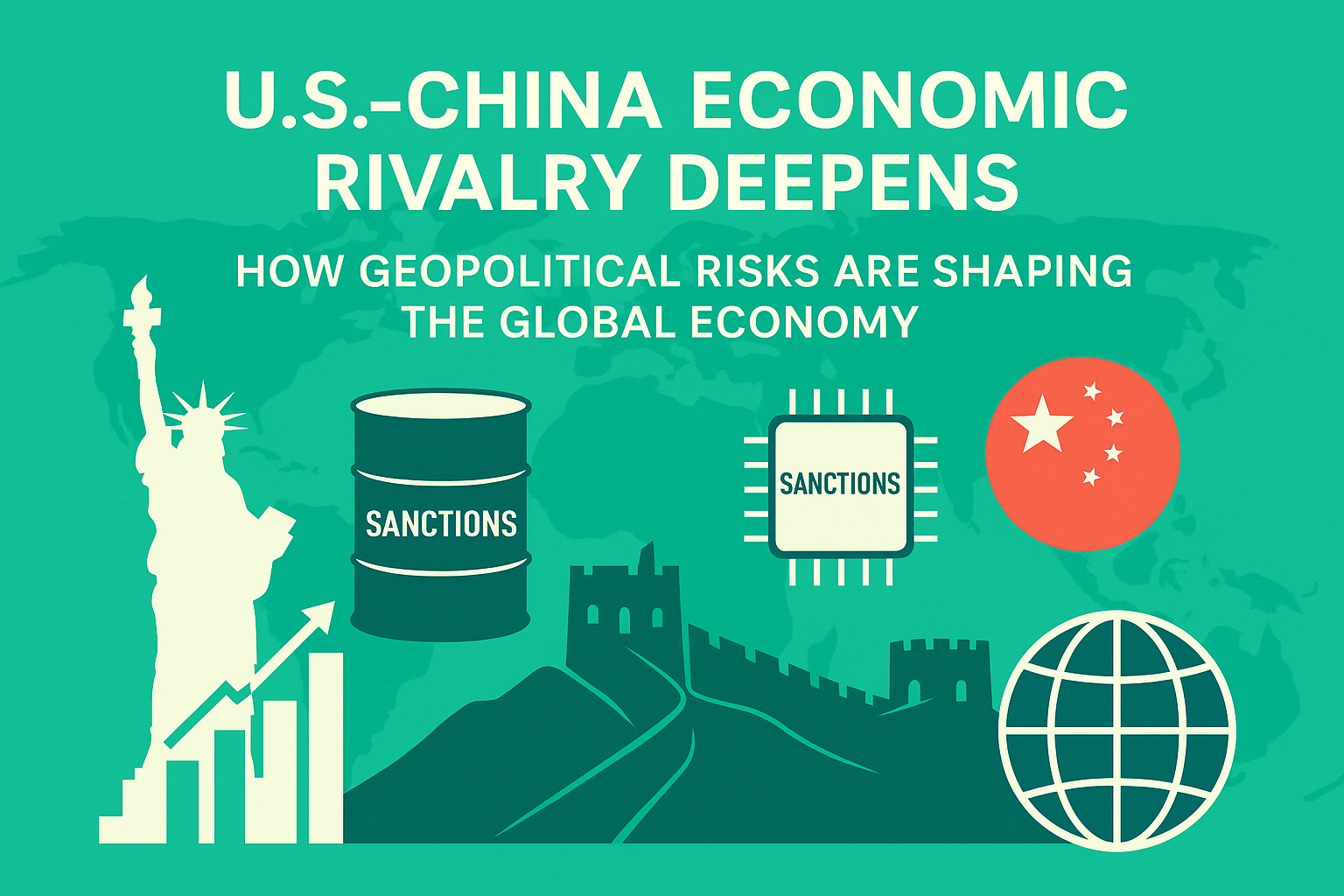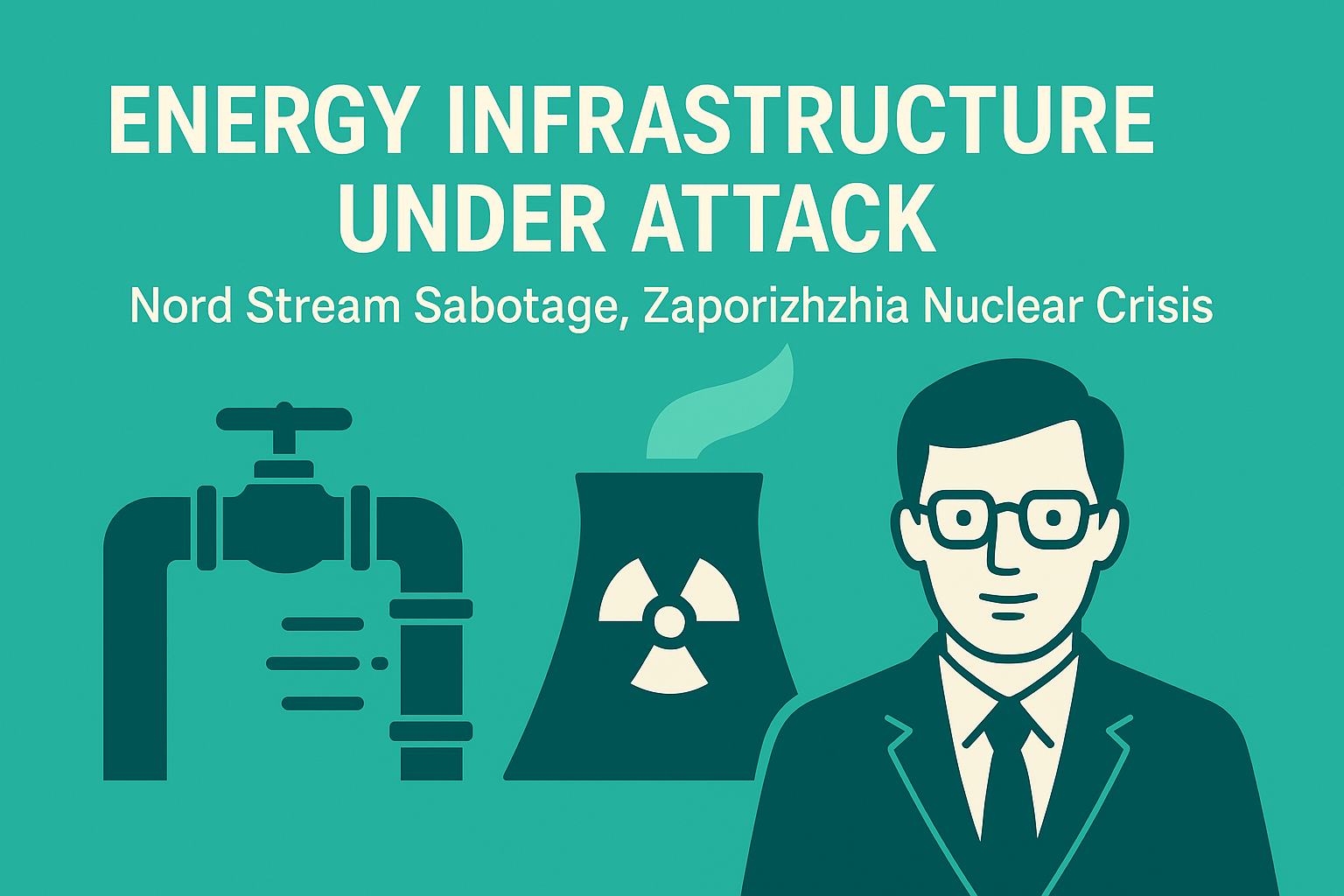— How the Global System Is Changing —
Date: December, 2025
Author: News Research – Economist Team
1. Introduction
Today, one of the biggest tensions in the world economy and politics is the relationship between the United States and China.
These two global powers are competing for control over technology, resources, and manufacturing power.
This is no longer just a trade dispute — it has expanded into a security and technology rivalry that affects the entire world.
When economics, technology, and national security become intertwined, we call this a “geopolitical risk.”
2. What’s Happening Between the U.S. and China?
(1) The Battle Over Semiconductors and Technology
- The U.S. has restricted sales of advanced computer chips (semiconductors) to China.
- China is investing heavily to develop its own chip-making technology.
- Both sides want to control the key technologies that power AI, smartphones, and defense systems.
👉 This is often called a “Tech Cold War.”
(2) The Struggle Over Rare Earths
- Rare earths are special metals used in electric vehicles, smartphones, and wind turbines.
- China controls most of the world’s rare-earth mining and processing.
- Recently, China started limiting exports of these minerals for national-security reasons.
- The U.S., Japan, and others are now searching for alternative suppliers.
👉 In short, resources have become weapons of diplomacy.
(3) Re-shaping the Global Supply Chain
- A supply chain is the process of making and delivering products: from raw materials → parts → assembly → export.
- For decades, many global companies depended heavily on factories in China.
- After trade tensions and the pandemic, companies started moving some production to India, Vietnam, or Mexico.
- Still, completely removing China from the chain is difficult and expensive.
👉 The world is entering an age of “China-plus-one” production.
3. Why Are Geopolitical Risks Rising?
There are three major reasons:
1️⃣ Economic rivalry has become part of national security.
Technology, data, and resources are now seen as tools to protect a nation’s power.
2️⃣ The world is becoming more divided.
Countries are gradually aligning with either the U.S. or China, reducing mutual dependence.
3️⃣ Many other nations are caught in between.
Countries like Japan, India, and those in Southeast Asia must balance between both sides.
➡️ In short, the global rules are changing.
4. How Does This Affect the World and Our Lives?
| Area | What’s Happening | Possible Impact |
|---|---|---|
| Resources & Energy | Prices of rare earths and oil are rising | Higher costs for electronics and cars |
| Technology & Manufacturing | Chip supply is unstable | Gadgets may become more expensive |
| Currency & Finance | The U.S. dollar is strong; the Chinese yuan is weaker | Imported goods cost more |
| Business & Investment | Companies pay more to diversify production | Global inflation pressure continues |
5. What Could Happen Next?
| Scenario | Description | Likelihood | Global Impact |
|---|---|---|---|
| A. Ongoing Rivalry (Base Case) | Continued restrictions and counter-measures | ★★★★☆ | Economic fragmentation; prices stay high |
| B. Partial Cooperation | Some dialogue and trade improvement | ★★☆☆☆ | Temporary easing of tensions |
| C. Escalation | Rising military tension (e.g., Taiwan, South China Sea) | ★☆☆☆☆ | Severe shock to trade and financial markets |
👉 For now, Scenario A is the most realistic — a period of “prolonged competition and caution.”
6. What Should Governments and Companies Do?
- Diversify risks – get materials and components from multiple countries.
- Stay informed – follow policy changes and sanctions early.
- Build new partnerships – strengthen ties with India and ASEAN countries.
- Support global stability – keep economic competition from turning into military conflict.
7. Conclusion
The rivalry between the U.S. and China is reshaping the world economy.
This is not only about money or trade — it’s about technology, security, and values for the future.
A “high-geopolitical-risk” era means that
👉 relations between nations now directly affect everyday life and the global economy.
Understanding these changes calmly and thinking strategically will be a key skill
for the next generation of global leaders.
Sources: Reuters, Financial Times, Le Monde, Goldman Sachs, JBIC Analysis (Oct 2025)


